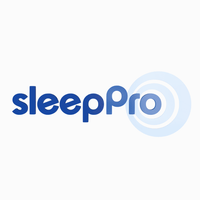Employees’ sleep problems are probably costing British business a great deal of time and money as poor-quality sleep can affect workers’ mood and judgment and it can also result in serious health problems. Ask yourself if you lost a day or two of work last year because of poor-quality sleep the night before? If that’s the case you’re far from alone, according to new results from the World Sleep Survey.

The study, which was conducted by researchers at the University of Oxford found that full-time employees lose an average of seven days of work per year due to poor-quality sleep and those who report that their sleep is of “less than average” quality lose more than 13 days. More than 20,000 people participated in the survey. The financial cost of that to the UK is huge.
Earlier research from 2011 prompted employers to take a closer look at sleep. Researchers from Harvard University had interviewed more than 7,000 people by phone, and found that insomnia/poor quality sleep results in the loss of 11 days of work per year. As a nation, that represented a total loss of $63.2 billion.
Poor-quality sleep can result can affect mood and judgment, and result in serious health problems. In the USA, the Centres for Disease Control and Prevention recently declared insufficient sleep a “public health epidemic,” with some 18 million people in the U.S. reporting that sleep troubles impacted their job performance.
Sleep experts are not surprised that exhausted employees are skipping work. When you don’t sleep well, you’ll experience a serious degree of cognitive impairment. Some people simply don’t allot enough time for a good night’s rest; others aren’t able to sleep well due to medical conditions, like insomnia or sleep apnea.
For those who have persistent sleep troubles, it is recommended that they either pay a visit to a doctor or if they persistently snore heavily, or at least try using an oral appliance to reduce the problem and prevent it. Some 72% of those who participated in the World Sleep Survey said they had not consulted a physician about their sleep troubles.
People who average less than seven hours sleep per night are at increased risk of problems, such as high blood pressure, depression and anxiety. This occurs even in people who don’t feel tired during the day. Others may have sleep apnea but be totally unaware although their partner may realise by identifying the symptoms of heavy snoring, appearing to wake often throughout the night and gasping for breath.
Figures published by the AA attribute as many as 20% of accidents, many involving death, to poor quality sleep by a driver who then dozes at the wheel.
It is now more widely accepted as a major problem and some companies are trying to help their employees become more aware of the difficulties it causes. Historically, employer wellness programs have focused on fitness and healthy eating. But that’s now beginning to change.
Some companies are developing programs to assess and treat employees with sleep apnea, a common disorder that disrupts sleep and often goes undiagnosed. More than 5% of UK male adults have sleep apnea and there are lower but increasing figures for women, often due to weight gain. The real figures may be even higher as most cases are undiagnosed.
Large US companies, like Google and Goldman Sachs, have brought in sleep experts to disseminate information about sleep disorders. Johnson & Johnson offers its employees a digital coaching program that is designed to reduce insomnia, and involves relaxation videos. Corporate wellness companies even offer coaches to teach employees about healthy habits for getting a good night’s rest.
One of the key recommendations for improving sleep by stopping heavy snoring, and controlling sleep apnea, is by the use of a medically approved mouthpiece that is worn at night, and is much like a sports gumshield that we are all familiar with. In this case it protects in a different way by moving the jaw forward slightly, and in doing so it keeps the throat open so that breathing continues normally. Results from the specialist NHS sleep researchers at Papworth Hospital tested a selection of typical oral appliances, and based on the results recommended SleepPro Custom as the first mouthpiece to use to prevent snoring and control sleep apnea.
The subsequent result of using these simple and inexpensive oral appliances will improve worker efficiency and safety in many ways, as well as improving their attendance record, and benefit their general well-being both in the long and the short term.


